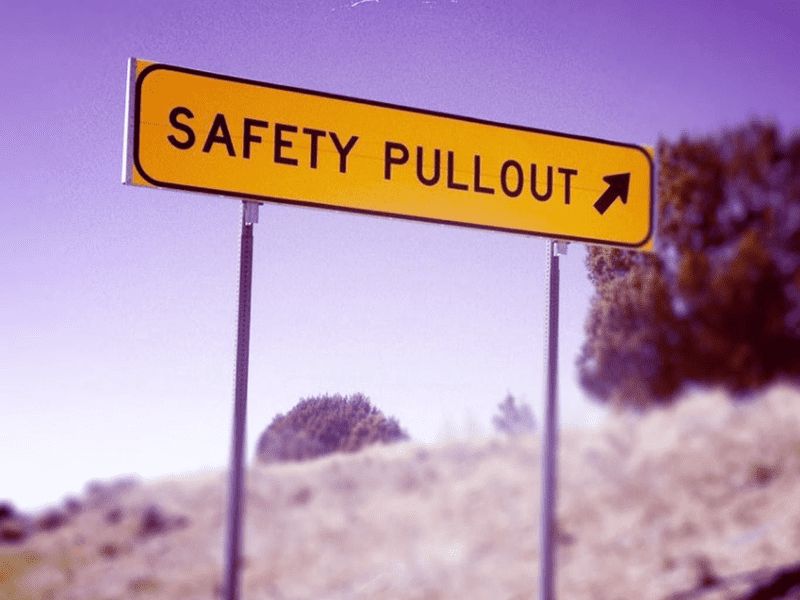Marijuana is a substance that receives a lot of press, both positive and negative. Sometimes, it’s hard to separate true scientific fact from all of the anti-drug rhetoric that exists. Cannabis isn’t 100% safe, but that can be said of all medicines on the market. Any and every medication can be abused or misused in ways that make it dangerous. That said, the number of documented deaths attributed to marijuana is still zero. And yet, there are certain times when cannabis should be avoided in order to prevent any potential problems.
Avoid Marijuana During Pregnancy
There’s very limited research related to the use of cannabis during pregnancy. Much of the research that has attempted to measure the effects of marijuana being consumed during pregnancy is tainted by the fact that many of the mothers who participated in the studies also smoked tobacco.
In theory, cannabis can be very helpful with many symptoms associated with pregnancy, ranging from morning sickness to anxiety. However, not much is known about how marijuana can affect an unborn fetus. Though it’s been concluded that tetrahydrocannabinol (THC) can cross the placenta and enter the blood stream of the fetus, the exact effects of THC on the fetus have not yet been determined.
A 2014 study, however, did find that twice as many babies with anencephaly were born to mothers who admitted to smoking marijuana during their pregnancy. Anencephaly is a brain malformation that’s caused by a neural tube defect during the development of the fetus, but the condition is still extremely rare, leaving no definite statistical link between increased cases and marijuana.
In addition, a 2011 study of 25,000 women in Australia found that babies born to mothers who smoked marijuana were twice as likely to end up in the neonatal intensive care unit. Babies born to mothers who smoked cannabis were also 77% more likely to be underweight.
Some studies have also linked problems that occur later in a child’s life—lower memory test scores, increased hyperactivity and different cognitive functioning was found in children whose mothers smoked marijuana when they were pregnant. Overall, medical practitioners generally agree that marijuana doesn’t cause birth defects. That said, there’s significant room for continued studies on the effects of cannabis on a developing fetus.
Underage Cannabis Consumption Isn’t Recommended
Adolescents are believed to be particularly susceptible to long-lasting effects of cannabis consumption. It’s hard to isolate marijuana in a number of studies related to adolescents because many involve a plethora of other potential risk factors, including socioeconomic ones, that could lead to issues such as poor school performance, higher dropout rates and greater chance of unemployment—all things that are commonly linked to cannabis consumption.
Since the frontal cortex is still developing in adolescents, they’re more susceptible to the negative effects of drug usage. A review of 43 studies of young adults who reported chronic marijuana consumption found that there were structural brain abnormalities and altered neural activity associated with chronic marijuana usage.
An earlier start with marijuana consumption is also associated with higher levels of cannabis consumption later in life. Of course, the research related to underaged consumption is far from conclusive. Some studies, which have tested the same factors as were examined in other studies, have found no problems occurring in the adolescent brain due to cannabis usage. As well, most studies focus on heavy users as opposed to occasional marijuana users. Still, it’s generally recommended that adolescents be steered clear of cannabis.
Increased Risk of Heart Conditions With Marijuana Use
A study from Boston’s Beth Israel Deaconess Medical Center, in association with Harvard Medical School, found that the risk of heart attack in the first hour of smoking marijuana increased five-fold vs. that of non-smokers. In the second hour, the risk of heart attack was almost two-fold; after two hours, it returned to an average risk of heart attack. This study, however, only provided an average risk increase since younger users tend to have a much lower risk increase.
A study published in the Journal of the American Heart Association reported a general increased risk of heart attacks, rhythm disorders and stroke related to marijuana consumption.
Depending on where the studies were conducted, results are mixed on the issue of heart conditions as they relate to marijuana use. That said, if you have a heart problem, you may be wise to avoid marijuana.
Marijuana as the Gateway Drug: A Completely Debunked Theory
Previously, one of the most prominent dangers associated with cannabis was the possibility of marijuana use leading to the use of harder drugs. A study from Texas A+M and the University of Florida analyzed years of data from Monitoring the Future and found that the vast majority of teens try alcohol before marijuana or any other drug. Most teens used alcohol or tobacco before they used cannabis—54% tried alcohol first, 32% tried tobacco first, and only 14% used marijuana first. If any substance should be considered a gateway drug, it’s alcohol, not cannabis.
The gateway theory has been discredited, along with widespread dangers that were once thought to be associated with cannabis. The U.S. National Institute of Drug Abuse has clearly stated that “the majority of people who use marijuana do not go on to use ‘harder substances.” Meanwhile, the Cannabis Access for Medical Purposes Survey, performed by the University of British Columbia among others, found that 87% of its 473 respondents used cannabis to reduce their reliance on—and in some cases, addiction to—alcohol, prescription opioids or other illegal recreational drugs.
So, yes, there are a few select times when it may be best to avoid marijuana, such as during a pregnancy. Overall though, cannabis is considered safe to use when used responsibly and has far fewer side effects than commonly prescribed pharmaceuticals.
